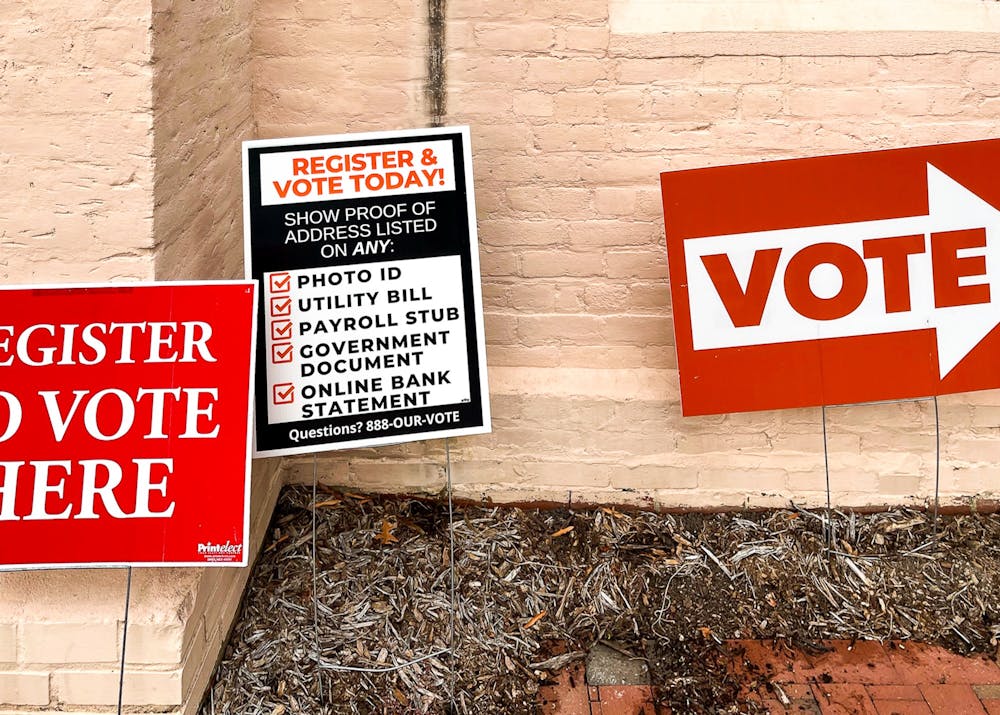According to Jean-Patrick Grillet, research manager at Democracy North Carolina, any attempt to increase limitations on voting prior to Election Day, such as the restriction of early voting or heightening registration requirements, has a disproportionate impact on younger voters, voters of color, the economically vulnerable and women.
“This is for tons and tons of reasons,” he said. “The less economically stable you are, the less likely you are to have time off to go vote on Election Day, especially if your only option is on Election Day,” he said.
Meanwhile, both Phillips and Shenton argued that attempts to implement a voter ID law, which was approved by the N.C. General Assembly in 2018 but remains the subject of lawsuits, threaten to disproportionately affect Black voters in North Carolina.
“In minority communities, particularly the ID can sometimes be a barrier, especially if it is a very limited number of IDs that are acceptable,” Phillips said.
Other significant barriers
Beyond institutional challenges, Grillet and Phillips mentioned a variety of other social and situational challenges that make voting more difficult for North Carolinians.
One of the most significant was a lack of information, which Phillips said affects all voters equally and depresses their desire to cast a ballot.
“It can be a lack of information about, you know, the election itself, but a lot of times it's also about what the election is about and who's on the ballot," he said.
Grillet also mentioned difficulties acquiring transportation to a polling place, which he said can depress turnout from rural voters and those who lack their own means of transportation.
However, both noted the increasing challenges created by voter intimidation. According to Grillet, this pressure can often take many forms and can be very tricky to classify due to how subjective it is for different voters.
While Shenton said that outright violence at polling places is generally not very common, he noted that the United States’ increasingly polarized political climate has made intimidation more frequent. Furthermore, he said conflicts at voting sites can have wider-reaching consequences, suppressing turnout even from those who are not personally affected.
“These things are part of the air we breathe. If you hear about someone being threatened for going into a polling place, that story spreads and it becomes part of the narrative about what it will take to vote,” Shenton said.
To get the day's news and headlines in your inbox each morning, sign up for our email newsletters.
Addressing the barriers
Ultimately, Shelton said the goal of voting barriers, even if they are not insurmountable, is to make participation more exhaustive, costly and complicated, placing increased burdens on voters that discourage them from making their voices heard.
To address these challenges, he said that policies must be implemented to make voting easier and more efficient, reducing the institutional and social challenges voters face prior to Election Day.
According to Phillips, this might be accomplished by restoring counties’ flexibility to determine their early voting hours or automatically sending ballots to voters who previously chose to vote by mail in the past.
Grillet, meanwhile, said North Carolina should implement an automatic voter registration system, which he argued would both make voting easier and signal its importance to all North Carolinians.
Several tools also exist to help voters in the upcoming election cycle.
“We should want people to participate. We should want everyone's voice involved. We should want to do this together,” Shenton said. “Democracy is something we do together, and we should have everybody involved in that.”
@DTHCityState | city@dailytarheel.com



